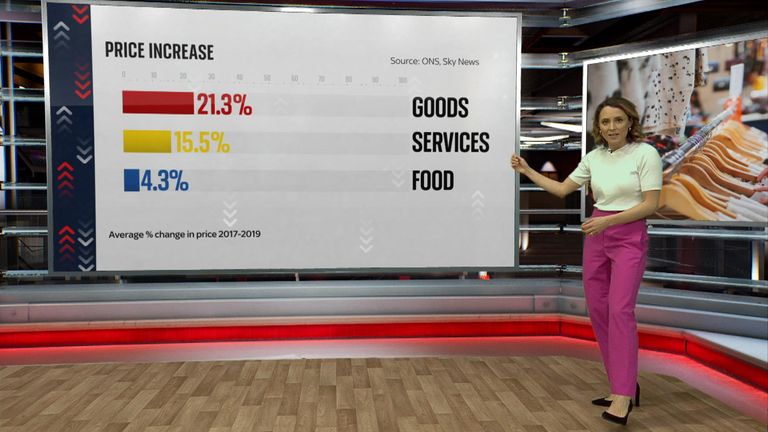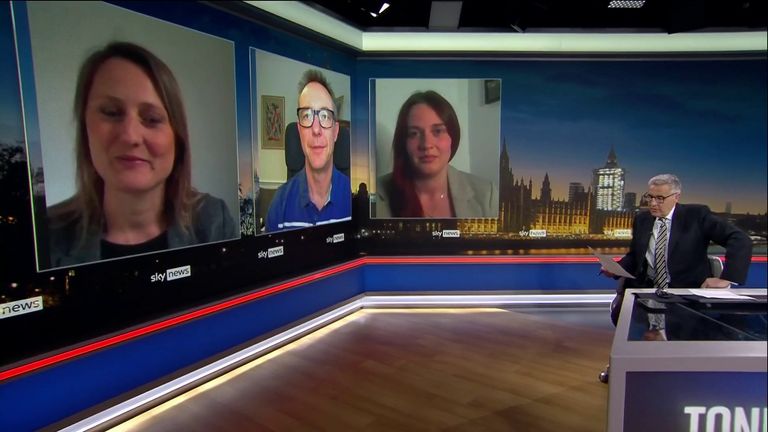[ad_1]
Storing personal protective equipment (PPE) related to COVID is costing the taxpayer an estimated £3.3m each week, the government has revealed, as households struggle to make ends meet amid the cost of living crisis.
Labour’s deputy leader Angela Rayner, who requested an estimate of the storage costs, claims the sum equates to £471,429 of taxpayers’ money being spent each day.
Labour claims its analysis shows the government’s “waste” on PPE throughout the pandemic would be enough to save each household in the UK more than £310 amid soaring finances.
The written question from Ms Rayner also revealed £5.8m of taxpayers’ money had been spent on PPE storage in China at the end of 2021.
Those struggling through the cost of living crisis would be “outraged” at the sum being “frittered away” on PPE storage costs, Ms Rayner said.
“While families are struggling to make their pay cheques last the month, they will be justly outraged to learn their hard-earned taxes are being frittered away to meet huge PPE storage costs on the other side of the world.
“The government flushing the public’s money down the drain with their wasteful cronyism adds insult to injury as they raise taxes on working people in the middle of a cost of living crisis.”
Ms Rayner had written to the government to request it “publish an estimate of the costs of storage and warehousing for PPE from August 2021 to date”.
In response, Health Minister Edward Argar said: “The information is not held in the format requested. The department reports on storage costs on a quarterly basis based on invoiced expenditure.
“Between 1 September 2021 to 30 November 2021, the latest information available, the total cost for personal protective equipment storage in the United Kingdom was £72.4m and £5.8m for storage in China.
“We estimate current storage costs to be approximately £3.3m a week. This is a reduction of 82% compared to October 2020.”
Many people in Britain are facing an increase in energy bills, council tax and the effects of a National Insurance tax rise – as well as inflation hitting a 30-year-high of 7% last month.
According to new figures released by the Office for National Statistics this week, almost nine out of 10 adults say they have seen a rise in their cost of living – compared to 62% in November last year.
Recently, supermarket groups Asda and Morrisons announced efforts to help struggling shoppers during the cost of living crisis.
Asda, Britain’s third-largest supermarket after Tesco and Sainsbury’s, said it will invest more than £73m to keep the prices of more than 100 essential items low until the end of the year.
The items include some fresh fruit, vegetables, fresh meat, and frozen food.
Morrisons, the country’s fourth-largest supermarket, said it has reduced prices on more than 500 products, including cereal, cooking sauces, chicken and sausages as well as flour, bread and ham.
Last week, Downing Street confirmed Boris Johnson will chair a committee with the aim of tackling the cost of living crisis “in the next couple of weeks”.
But Labour leader Sir Keir Starmer reiterated his call for an “emergency budget, not a Cabinet meeting” to tackle the rising costs households are facing.
He told Sky News’ Sophy Ridge on Sunday programme this emergency budget should include a windfall tax on oil and gas companies to allow energy bills to be cut “at the very least”.
“We are not talking about taxing the profits they expected to make. This is the profits they didn’t expect to make,” Sir Keir said.
“We would then use that to reduce energy bills by up to £600 by those who need it, directly using that for the energy bills.
“I tell you this – £600 help with energy bills for those that need it will be desperately needed and welcomed across the country.”
Speaking about the rise in national insurance contributions, he added: “We also wouldn’t introduce a self-defeating tax at the worst possible time.”
Sir Keir said the cost of living has been the “number one issue” on the doorstep while campaigning for the local elections, adding that the Conservatives have said “absolutely nothing” about it.
But on the same programme, Business Secretary Kwasi Kwarteng voiced firm opposition to a windfall tax on oil and gas companies.
“I’ve never been a supporter of windfall taxes – I’ve been very clear about that publicly. I think they discourage investment,” he said.
[ad_2]










